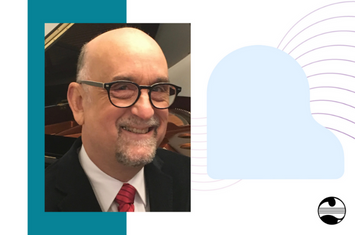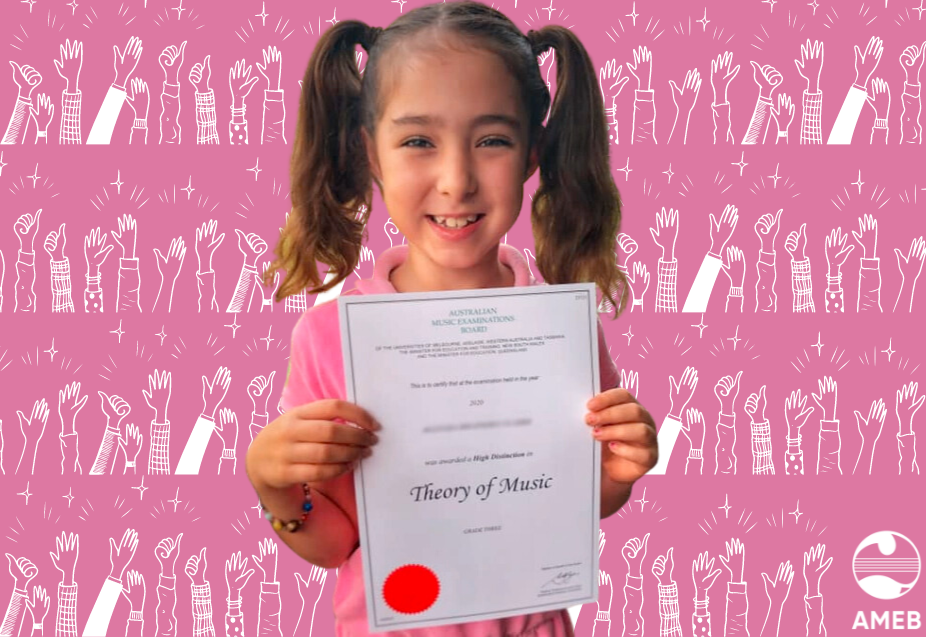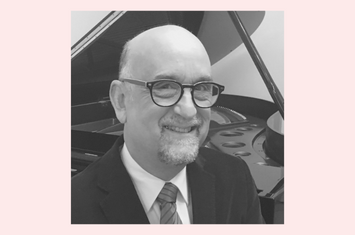
The Licentiate performance diploma is a demanding examination that requires committed preparation over an extended period. The following comments are intended to assist candidates and teachers in better understanding this award's challenges and provide guidance for effective preparation. They incorporate feedback from members of AMEB’s panel of federal practical examiners, based upon performances presented in the 2022 cycle of examinations.
General expectations
The Licentiate examination is assessed as a concert performance, and the format is more like a recital than a traditional examination.
The objectives that form the basis of the assessment are set out in the 2023 Manual of Syllabuses and appear as part of the Level 3 syllabus requirements for each specialisation. A key expectation is that candidates demonstrate the ability to communicate musical and expressive content without technical impediments.
In particular, examiners will be looking for:
1. A personal connection to the expressive elements of music and the ability to engage with mood and emotion.
2. A level of technical accomplishment that results in a confident and fluent performance, and which maintains consistency and continuity.
3. Respect for the detail contained in the printed score (such as dynamics, articulation and tempo/mood indicators).
4. Interpretive choices that stem from a personal view of the music, based on the composer’s intentions, as revealed in the score itself.
5. Physical stamina and mental concentration.
6. Playing that is informed by a broader musical awareness, such as a knowledge of other repertoire, of historical and stylistic context and of other approaches to interpretation.
The syllabus objectives should be studied carefully, and all other syllabus requirements should be fully understood. This includes program structure, program duration and performance from memory. These are all set out in detail in the 2023 Manual of Syllabuses.
Program construction
The syllabus sets out specific expectations for the construction of programs, which should be strictly adhered to. In particular, candidates should ensure that their programs:
1. Conform to the requirements of the repertoire lists.
2. Cover the required range of styles and/or historical periods.
3. Meet the specified timing requirements (allowing for appropriate breaks between items and movements but avoiding unduly long gaps).
4. Take account of the memory requirement.
The matter of maximum and minimum timings is of special importance. If a program falls short of the minimum, one or more works must be performed to increase the required length. It is equally important not to allow the program to exceed the maximum duration; otherwise, examiners will be obliged to curtail the performance so that the total examination time is not exceeded. Precise timings made at an early stage of preparation will ensure that such problems do not occur.
The performance
The examination is treated as a performance, and standard performance conventions should be observed. There will not normally be any conversation between works. Apart from small breaks, candidates should preserve their demeanour throughout the program.
At the Licentiate level, it is assumed that the candidate will demonstrate a level of accuracy, fluency, tonal control and overall continuity that will allow the expressive content of the program to be communicated with confidence. Technical ability alone is insufficient to ensure a successful outcome. Listening widely to other works and a range of different expert performances will assist in building a strong, authentic and well-founded personal conviction concerning style and interpretive possibilities.
General knowledge
General Knowledge is an integral part of the diploma assessment with its own set of objectives clearly set out in the Manual of Syllabuses. The Licentiate examination is assessed holistically, with the performance and the General Knowledge taken into account when determining the overall result. The way a candidate responds to General Knowledge questions is one indicator of their level of musical insight and maturity. Well-prepared general knowledge will also enhance the quality of the performance itself.
The overall requirement of the General Knowledge section is for the candidate to demonstrate a mature understanding of the repertoire from the viewpoint of:
1. Structure
2. Style
3. Historical background
Examiners assess this by asking questions from the full score concerning:
1. Terminology, including the significance of titles and the meaning of all markings contained in the score.
2. Composers: relevant biographical information, sources of influence, impact upon later generations of composers and repertoire output (both in the discipline being examined and more broadly).
3. Historical and stylistic context: how each work relates to the period from which it arises, considering both its compositional style and the performance conventions of the time.
4. Structure: formal layout, keys, melodic/harmonic language and the identification of climax points.
5. For instrumentalists, the construction and development of the instrument, with special consideration given to any implications this may have upon the repertoire that is performed.
All general knowledge questions relating to the performed repertoire will be asked from the complete score, not the instrumental part. It is, therefore, important that the candidate is familiar with the piano part and can navigate the score with ease.
Examiner comments from 2022
Examiners offer the following advice arising from the examinations conducted in 2022:
1. Candidates are advised to organise informal performance opportunities in advance of the examination. Initially, this might involve presenting just one or two items, gradually building up to the entire program.
2. It can be helpful for candidates to rehearse, if possible, in the designated venue prior to the examination date.
3. Pianists should try to perform on a variety of instruments to enable them to adapt to the idiosyncrasies of each as quickly as possible.
4. It is quite acceptable for string, woodwind and brass players to check tuning between items.
5. Full scores should be provided to the examiners rather than just the instrumental parts. General Knowledge questions will be asked from the full score.
6. Listen to a wide range of repertoire and to many performances by professional musicians. Go well beyond the repertoire presented for examination, including large-scale works such as symphonies, concerti, operas and sacred compositions. This will give perspective on where the chosen repertoire sits within the composers’ outputs.
7. Develop the ability to think ahead, allowing your mind and inner hearing to direct the performance.
8. Achieving musical maturity, physical comfort, and technical security requires extended preparation time. Recognise that learning the notes is just the first stage of the process. Consider it the basic “canvas” on which the performance's all-important artistic, stylistic and musically informed aspects can be built.
9. Pianists need to show an awareness of where the leading melodic line is located within the texture and to balance the layers effectively. Chords and octaves should be voiced so that the essential features of melody and harmony are projected. This will give the playing greater focus and clarity and prevent excessively dense textures.
10. One of the most important tools for the pianist is the ability to produce a rich, singing, cantabile tone. This aspect is often overlooked, resulting in monochrome performances, making it very difficult to convey the depth of expression implicit in the music. This is especially (but by no means exclusively) relevant to music of the 19th century as well as slow movements from all periods.
11. All pencilled markings should be carefully erased from the score before the examination. This need not include those relating to fingering, bowing and interpretation, only those potentially addressing aspects covered in the General Knowledge section of the examination (form, keys, terminology etc.).
12. In the General Knowledge section, it is important to listen carefully to the examiners’ questions. Rote-learned responses unrelated to the questions asked are not acceptable.
13. Programs should be carefully chosen so that they lie within the player’s technical capacity, enabling them to project a sense of musical artistry and authority without technical strain.
14. In disciplines requiring a collaborative artist, it is important to realise that the performance involves an artistic collaboration between soloist and pianist. This level of rapport needs to be actively developed through a sustained rehearsal process.




